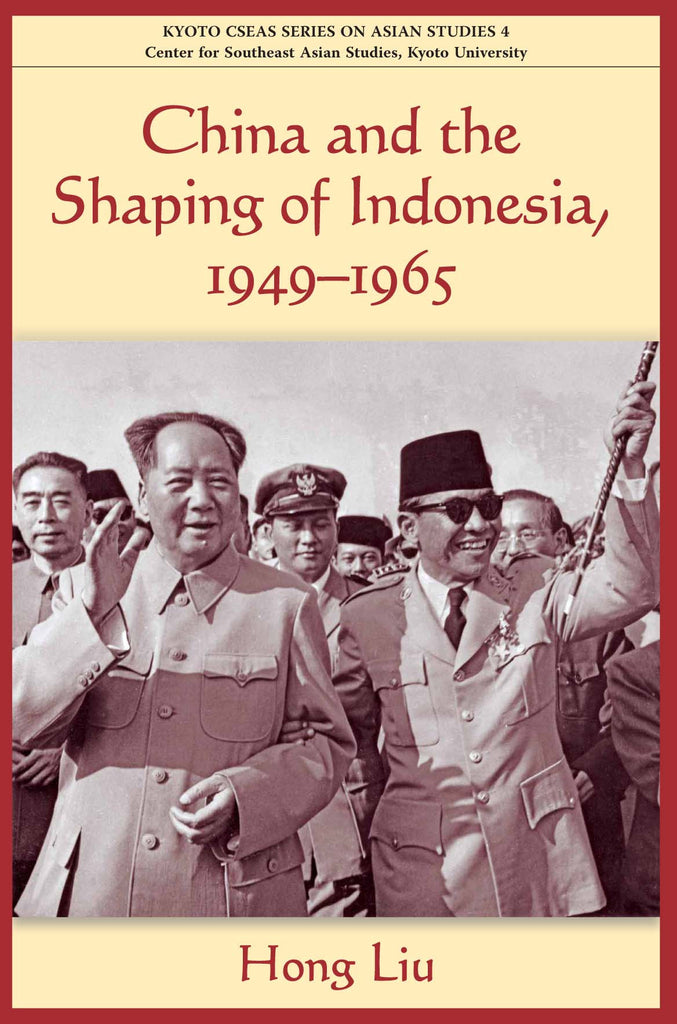China and the Shaping of Indonesia
$38.00 SGD
The interactions and mutual perceptions of China and Indonesia were a significant element in Asia's postcolonial transformation, but as a result of prevailing emphasis on diplomatic and political relations within a Cold War and nation-state framework, their multi-dimensional interrelationship and its complex domestic ramifications have escaped scholarly scrutiny.
China and the Shaping of Indonesia provides a meticulous account of versatile interplay between knowledge, power, ethnicity, and diplomacy in the context of Sino-Indonesian interactions between 1949 and 1965. Taking a transnational approach that views Asia as a flexible geographical and political construct, this book addresses three central questions. First, what images of China were prevalent in Indonesia, and how were narratives about China construed and reconstructed? Second, why did the China Metaphor - the projection of an imagined foreign land onto the local intellectual and political milieu - become central to Indonesians' conception of themselves and a cause for self criticism and rediscovery? Third, how was the China Metaphor incorporated into Indonesia's domestic politics and culture, and how did it affect the postcolonial transformation, the fate of the ethnic Chinese minority, and Sino-Indonesian diplomacy?
Employing a wide range of hitherto untapped primary materials in Indonesian and Chinese as well as his own interviews, Hong Liu presents a compelling argument that many influential politicians and intellectuals, among them Sukarno, Hatta, and Pramoedya, utilized China as an alternative model of modernity in conceiving and developing projects of social engineering, cultural regeneration and political restructuring that helped shape the trajectory of modern Indonesia. The multiplicity of China thus constituted a site of political contestations and intellectual imaginations. The study is a major contribution both to the intellectual and political history of Indonesia and to the reconceptualization of Asian studies; it also serves as a timely reminder of the importance of historicizing China's rising soft power in a transnational Asia
"Liu has woven analyses based on Indonesian, Chinese, and cultural studies, informed by a sense of transnational flow of ideas and political influences. His rich mass of information and material comes from many sources in several languages...An effort of major scholastic merit." - Khoo Boo Teik
"[The book] is an important addition to the literature on the interactions between teh two largest countries in East Asia and South-East Asia during the Cold War era. The book is an inspiring account of Indonesian intellectual history as well as a detailed examination of cultural diplomacy between China and Indonesia. As a book on Indonesian intellectual history, the book enriches our understanding of the intellectual rubrics of Indonesia's post-independence development through a transnational and cross-regional perspective...As a work on cultural diplomacy, Liu treats China and Indonesia not as two rigidly defined nation-states but as two fluid cultural domains. The author thus brings into discussion a great variety of exchanges between the two countries in non-political realms such as literature and economic thought." - Taomo Zhou
LIU Hong is Professor of History and Asian Studies and the Chair of the School of Humanities and Social Sciences at Nanyang Technological University in Singapore. He was formerly Professor of East Asian Studies and the inaugural Director for Chinese Studies at the University of Manchester.
Kyoto CSEAS Series on Asian Studies 4
Publication Year: 2011
366 pages, 229mm x 153mm
ISBN: 978-9971-69-381-7, Paperback
NUS Press and Kyoto University Press

